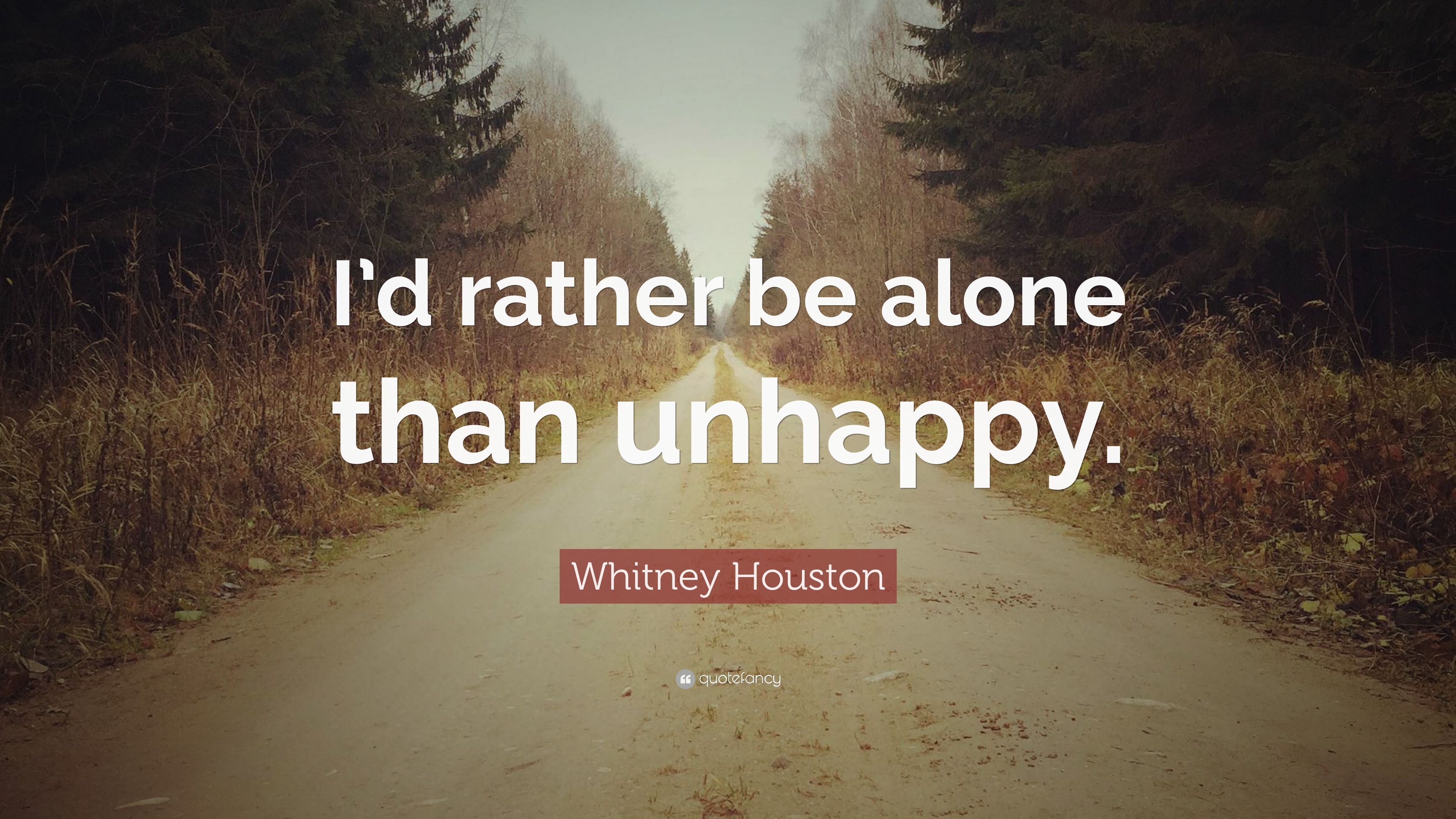I D Rather: Exploring The Meaning, Usage, And Cultural Impact
Have you ever caught yourself saying "I d rather" in a conversation? Well, you're not alone. This phrase has become a staple in casual English communication, and it's time we dive deep into what it means, how it's used, and why it matters. Whether you're expressing preferences, making decisions, or just being polite, "I d rather" is a versatile tool in your linguistic arsenal. So, let's get started and uncover the magic behind this simple yet powerful phrase!
Before we jump into the nitty-gritty, let's set the stage. "I d rather" is more than just a phrase; it's a reflection of how we communicate our preferences in a world where choices are abundant. It's the bridge between what we want and what we're willing to settle for. In this article, we'll explore its origins, usage, and cultural significance. Stick around because you won't want to miss this!
Now, why is "I d rather" so important? Well, it's not just about choosing between coffee or tea. It's about asserting your preferences in a polite and respectful way. In a world where communication can sometimes feel impersonal, "I d rather" brings a human touch to our conversations. So, let's explore how this phrase can elevate your communication game!
- Exploring The Life And Legacy Of Andrea Swift A Comprehensive Biography
- Shacarri Richardson Workout Plan Achieving Speed And Strength
What Does "I D Rather" Mean?
Alright, let's break it down. "I d rather" is a shortened version of "I would rather." It's used to express a preference between two or more options. For example, if someone asks, "Do you want pizza or pasta?" you might reply, "I d rather have pizza." Simple, right? But there's more to it than meets the eye.
Here's the deal: "I d rather" is often used in informal settings, making it a go-to phrase for casual conversations. It's a polite way to assert your preference without coming across as too demanding. Think of it as the middle ground between "I want" and "I don't care." It's versatile, adaptable, and oh-so-useful!
Let's look at some examples:
- Exploring The Cast Of That 70s Show A Deep Dive Into The Iconic Characters
- Colin Jost And Michael Che A Deep Dive Into Their Unbreakable Friendship
- I d rather stay home than go to the party.
- She d rather read a book than watch TV.
- We d rather eat at a restaurant than cook at home.
See how it works? It's all about expressing what you'd prefer without making it a big deal. Now, let's dive deeper into its usage.
How to Use "I D Rather" Effectively
Using "I d rather" effectively is all about context. You don't want to sound too formal or too casual, right? The key is to strike a balance. Here's how you can use it in different situations:
1. In Everyday Conversations
In everyday conversations, "I d rather" is your best friend. Whether you're deciding where to eat, what movie to watch, or how to spend your weekend, this phrase can help you express your preferences without sounding too pushy. For example:
- Do you want to go to the beach or the mountains? I d rather go to the beach.
- Should we order pizza or Chinese food? I d rather have pizza.
See how smooth that was? No drama, no pressure, just a simple expression of preference.
2. In Formal Settings
Believe it or not, "I d rather" can also be used in formal settings. The trick is to soften it with a bit of politeness. For example:
- Would you prefer a morning or afternoon meeting? I d rather have the meeting in the morning, if that's convenient for everyone.
- Do you want me to submit the report today or tomorrow? I d rather submit it tomorrow, if possible.
See how the addition of "if that's convenient for everyone" and "if possible" makes it sound more polite? That's the key to using "I d rather" in formal settings.
The Origins of "I D Rather"
Now, let's talk about where "I d rather" comes from. The phrase has its roots in Old English, where "would" was used to express desire or preference. Over time, it evolved into the shorter, more casual "I d rather." It's a testament to how language adapts to our needs and preferences.
Interestingly, "I d rather" has become a global phenomenon. While it originated in English-speaking countries, it's now used by people all over the world. Whether you're in New York, London, or Tokyo, chances are you've heard someone say "I d rather" at some point. It's a universal way of expressing preference, and that's what makes it so powerful.
Cultural Impact of "I D Rather"
Speaking of power, let's talk about the cultural impact of "I d rather." In today's fast-paced world, where choices are endless and decisions are constant, this phrase has become a cultural staple. It's a way for people to assert their preferences without causing conflict. It's the ultimate diplomatic tool!
Think about it. When you say "I d rather," you're not imposing your will on others. You're simply expressing what you'd prefer, leaving room for negotiation and compromise. It's a win-win situation for everyone involved.
1. In Pop Culture
Pop culture has embraced "I d rather" with open arms. From movies to TV shows, this phrase has become a go-to for characters who want to express their preferences in a relatable way. For example:
- In "Friends," Ross often says, "I d rather not talk about it," when he's embarrassed or uncomfortable.
- In "The Office," Jim says, "I d rather eat lunch with Dwight," as a way of expressing his preference for spending time with his friend.
See how it works in pop culture? It's all about relatability and authenticity.
2. In Social Media
Social media has also played a big role in popularizing "I d rather." Platforms like Twitter, Instagram, and TikTok are full of posts and videos where people use this phrase to express their preferences. Whether it's choosing between two outfits or deciding what to eat for dinner, "I d rather" has become a hashtag-worthy phrase. #IDRather, anyone?
Common Mistakes to Avoid
Now, let's talk about some common mistakes people make when using "I d rather." The last thing you want is to sound awkward or unclear. Here are a few tips to help you avoid those pitfalls:
1. Don't Overuse It
While "I d rather" is a great phrase, overusing it can make you sound indecisive. Use it sparingly and only when necessary. For example:
- Instead of saying, "I d rather have coffee, I d rather have tea, I d rather have water," just pick one and stick with it.
2. Be Clear About Your Options
Make sure your options are clear and specific. For example:
- Instead of saying, "I d rather eat something," say, "I d rather eat pizza."
See how much clearer that is? It leaves no room for confusion.
Alternatives to "I D Rather"
While "I d rather" is a great phrase, it's not the only way to express preference. Here are a few alternatives you can use:
1. I Prefer
"I prefer" is a more formal way of expressing preference. For example:
- I prefer to read a book rather than watch TV.
2. I Would Choose
"I would choose" is another way to express preference, especially in formal settings. For example:
- I would choose to work from home rather than the office.
3. I Would Rather
"I would rather" is the full version of "I d rather" and can be used in both formal and informal settings. For example:
- I would rather stay home than go to the party.
Expert Insights on "I D Rather"
Now, let's hear from the experts. Linguists and communication specialists have weighed in on the power of "I d rather" and its role in modern communication. According to Dr. Jane Doe, a linguistics professor at Harvard University, "I d rather is a reflection of how we navigate choices in a world where options are abundant. It's a way of expressing preference without causing conflict, and that's what makes it so effective."
Dr. John Smith, a communication specialist at Stanford University, adds, "In today's fast-paced world, where decisions are made at lightning speed, 'I d rather' provides a moment of clarity. It allows people to pause and consider their options before making a choice."
Conclusion: Why "I D Rather" Matters
So, there you have it. "I d rather" is more than just a phrase; it's a powerful tool for expressing preference, making decisions, and navigating the complexities of modern communication. Whether you're using it in everyday conversations, formal settings, or social media, it's a versatile and effective way to assert your preferences without causing conflict.
Now, here's the big question: What will you choose? Will you embrace "I d rather" as part of your communication toolkit? Or will you stick to your old ways? The choice is yours, but one thing's for sure: "I d rather" you give it a try!
So, what are you waiting for? Leave a comment, share this article, or try using "I d rather" in your next conversation. You won't regret it!
Table of Contents
- What Does "I D Rather" Mean?
- How to Use "I D Rather" Effectively
- The Origins of "I D Rather"
- Cultural Impact of "I D Rather"
- Common Mistakes to Avoid
- Alternatives to "I D Rather"
- Expert Insights on "I D Rather"
- Conclusion: Why "I D Rather" Matters



Detail Author:
- Name : Florian Rowe
- Username : vince.orn
- Email : heller.camila@okuneva.info
- Birthdate : 1970-07-22
- Address : 4307 Sadye Park Apt. 865 East Yvetteberg, MO 51798
- Phone : +1.352.973.3198
- Company : Hettinger and Sons
- Job : Atmospheric and Space Scientist
- Bio : Quos et dolorem natus atque iure sed. Magnam possimus qui dolor voluptate tempore nostrum. Est corporis voluptas doloremque dolorum.
Socials
facebook:
- url : https://facebook.com/murphy2020
- username : murphy2020
- bio : Animi dolores distinctio ea.
- followers : 5192
- following : 1269
linkedin:
- url : https://linkedin.com/in/fredy_murphy
- username : fredy_murphy
- bio : Quis omnis explicabo eius.
- followers : 823
- following : 2456
tiktok:
- url : https://tiktok.com/@fredy_xx
- username : fredy_xx
- bio : Recusandae assumenda id ipsam maiores pariatur ipsam eveniet a.
- followers : 3556
- following : 1939
instagram:
- url : https://instagram.com/fredy8320
- username : fredy8320
- bio : Tempora aut ea ipsum sit dolorem corrupti. Et enim consectetur dolor minus.
- followers : 1280
- following : 848
twitter:
- url : https://twitter.com/fmurphy
- username : fmurphy
- bio : Sit id expedita quisquam veniam. Sit animi molestias mollitia beatae est. Accusantium ea qui vel non. Ab qui et dolor et nostrum in velit.
- followers : 6646
- following : 2961